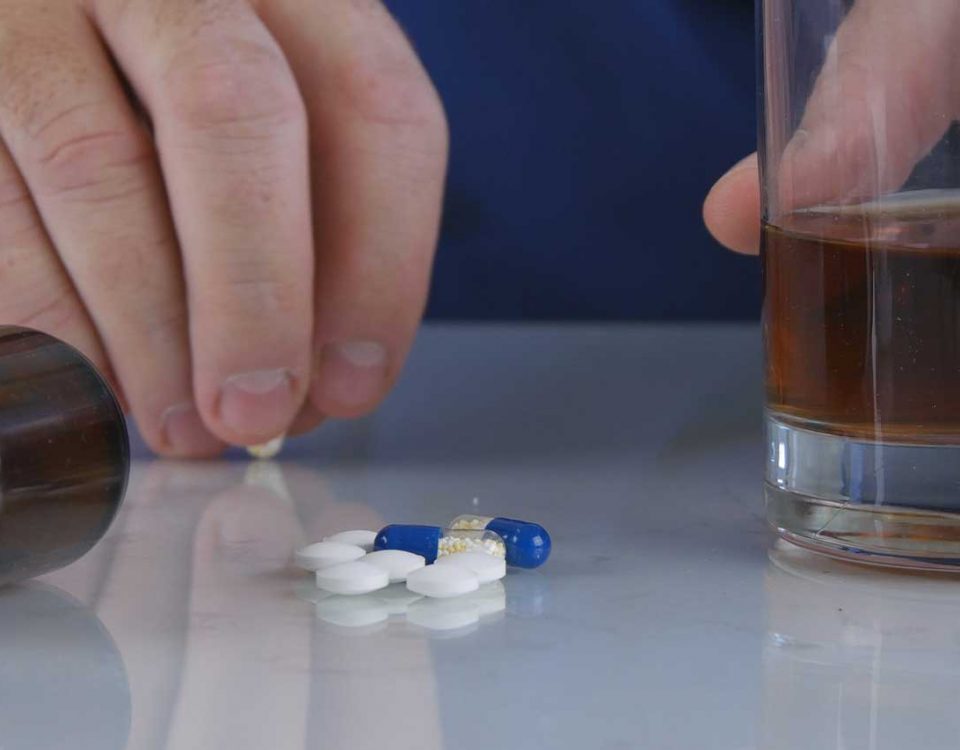Adderall is a combination of the drugs dextroamphetamine and amphetamine that’s used to treat attention deficit hyperactivity disorder (ADHD).
As a stimulant, Adderall works by increasing the levels of neurotransmitters in the brain called dopamine, serotonin, and norepinephrine, which control mood and emotion. Because Adderall regulates mood, it’s been proven helpful in improving hyperactivity, impulsivity, and spans in attention. As a rehab in Philadelphia, we’re aware that many people abuse or misuse Adderall for its stimulating side effects. The effects of Adderall on the body as a result of long-term abuse can be very dangerous and life-threatening. While Adderall is helpful for some who have ADHD, you should not take it unless directed by your doctor.
What Does Adderall Do to Your Body?
The effects of Adderall abuse on the body are extensive. Because this drug is a stimulant, it works by targeting the brain, which in turn affects other functions. People who take Adderall without a prescription, abuse it, or misuse it in any way are at a higher risk of experiencing adverse physical side effects. Below are some long-term effects of Adderall on the body.
As the name suggests, stimulants target the brain and “stimulate” nerve activity; different stimulants will target different neurotransmitters. Adderall affects the brain by enhancing the release of dopamine, serotonin, and norepinephrine. Dopamine plays a role in the brain’s reward system by activating pleasure and also plays a role in the way we think, plan, and make decisions. Serotonin plays a key role in stabilizing mood, sleeping, eating, and digestion. Norepinephrine increases arousal and alertness and is also naturally released by the central nervous system in times of stress; this is also known as the fight-or-flight response. There’s also a connection between dopamine production and mental illness; abusing drugs like Adderall can increase the likelihood of a mental disorder.
When a person who does not have ADHD or a similar condition takes this drug, they may experience adverse Adderall effects like:
- Nervousness
- Restlessness
- Dizziness
- Slurred speech
- Troubles falling asleep or staying awake
- Vision problems
- Fever
- Hallucinations
- Paranoia
- Depression
- Worsening symptoms of a mental disorder
Adderall can also affect the heart by constricting blood vessels, spiking blood pressure, and increasing heart rate. Numbness is also a common side effect of Adderall abuse due to its interference with the heart and circulatory system. Additional cardiovascular symptoms of Adderall addiction include heart attack and stroke. It’s also common for people who abuse Adderall to experience frequent chest pains and shortness of breath, especially when they take a high dose. If this pattern of behavior is repeated, the person’s heart may weaken, leaving them more susceptible to cardiovascular disease and other health problems.
Since Adderall also enhances the release of serotonin, it can cause stomach and digestive problems. It causes the muscle in the digestive tract to slow, which can lead to constipation and stomach pain. Adderall can also decrease a person’s appetite, which often leads to extreme weight loss and even unintentional anorexia. Nausea, vomiting, and diarrhea are also common side effects of Adderall on the body.
Can You Overdose on Adderall?
Yes, an Adderall overdose is a real possibility. Amphetamine salts, which are stimulant drugs, are present in Adderall. The body's processes can become overtaxed when Adderall is used in excess, which can have major negative effects on one's health. When the dosage of Adderall consumed surpasses the advised therapeutic levels, an overdose occurs.
It is critical to seek prompt medical assistance if an Adderall overdose is suspected. The medical professional can administer the proper care to control the symptoms and stop any additional problems. To reduce the risk of overdose, it's crucial to only use Adderall as directed by a doctor and stick to the suggested dosage.
How Long Does Adderall Stay In Your Body?
The amount of time that Adderall remains in the body will ultimately depend on a number of factors. Normally, the half-life of Adderall is between 9 to 14 hours. The term ‘Adderall half-life’ refers to the amount of time that it takes for half of the drug to be eliminated from the user’s bodily systems. That being said, it can take even longer for this process to occur in some cases.
Factors that can influence the length of time that Adderall remains in the body include:
- Frequency of drug use
- The dosage taken
- The metabolism of the user
- Liver and kidney function
- Hydration levels
- pH levels
Before a person starts taking Adderall, it is important for them to speak extensively with their healthcare provider about the potential risks involved. The side effects of Adderall abuse do not discriminate. Anyone who continuously misuses this drug and fails to receive professional help is at risk of deadlier consequences. At Banyan Treatment Centers Philadelphia, we offer a partial hospitalization program that allows patients to recover from their addictions while learning how to transition back into everyday life. In fact, patients at our drug rehab in Langhorne, PA, have access to numerous other levels of care, ensuring they get a recovery experience that is tailored to their unique needs.
Even though Adderall is a prescription drug, it doesn’t mean it’s entirely safe. People who have been prescribed Adderall and begin to misuse it are at risk of addiction.
If you or a loved one is struggling with this form of drug addiction, call Banyan’s Philadelphia drug rehab today at 888-280-4763 for more information on our prescription drug treatment.
Related Reading:









